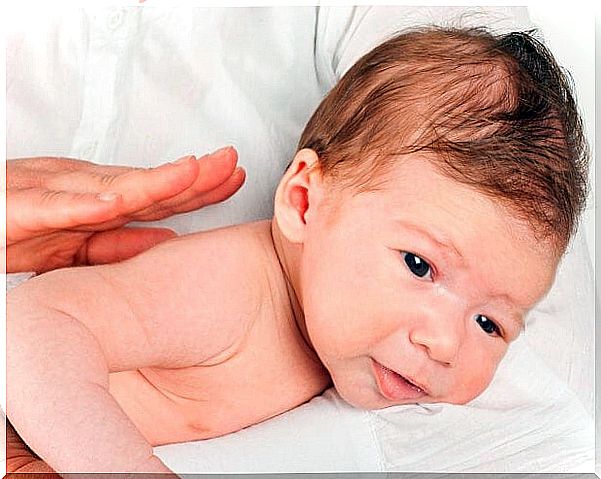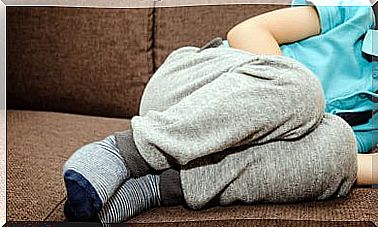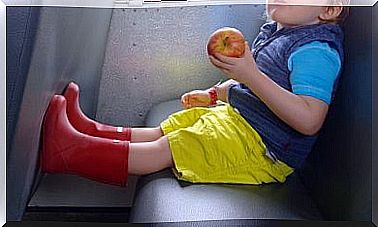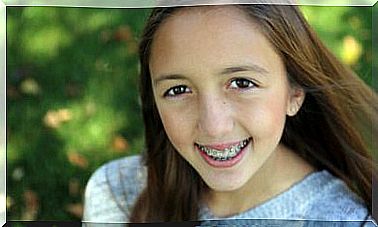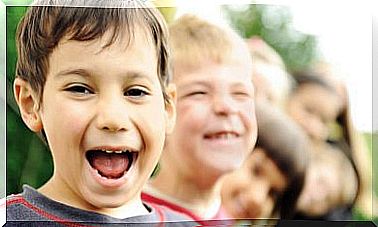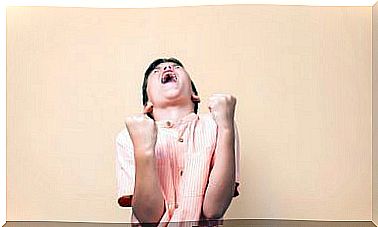My Baby Drools A Lot, What To Do?
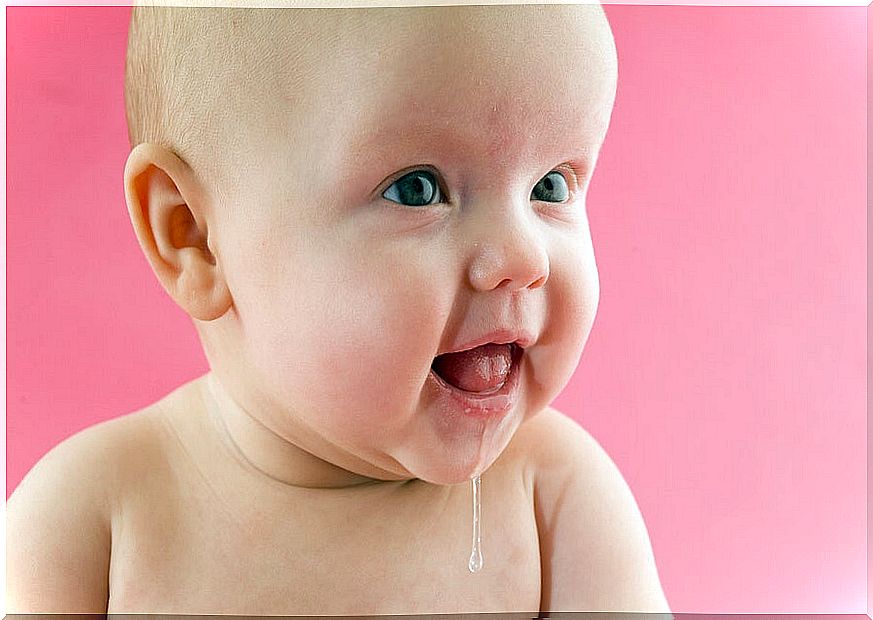
My baby drools a lot, what to do? This is a very common question for new mothers, who are scared when they see that their little one generates more saliva than they think he should.
Excess saliva or drooling is normal in babies, and this is because they do not know how to swallow yet. From two months of age, the little one begins to drool excessively; it does the same when it enters the teething process.
A newborn baby does not produce as much saliva, but as the months go by, the stage of sucking and biting everything begins. This is when saliva production increases. The baby produces it without realizing it; thus, naturally, it drools from this cause, which is not the case with milk.
It all depends on the swallowing system. When feeding, babies strain their mouth muscles to suck on everything. Instead, the saliva makes itself and stays there until it overflows.
In this case, the use of a bib is very effective. This does not allow the baby’s breast to get wet and keeps it warm. In addition, we must be vigilant and keep the child’s mouth dry to avoid irritation.
My baby drools a lot, when should I be concerned?
When a baby has a cold, it is normal for him to drool excessively. If we notice that he does it without being sick, it is time to visit the pediatrician.
When the drooling lasts for a long time, it may mean that the baby has some nervous system problem that does not allow swallowing to take place properly.
Also, if the little one eats badly and drools a lot while doing it, it may mean that it hurts to swallow. The cause is usually a viral infection that causes pain or sores inside the mouth.
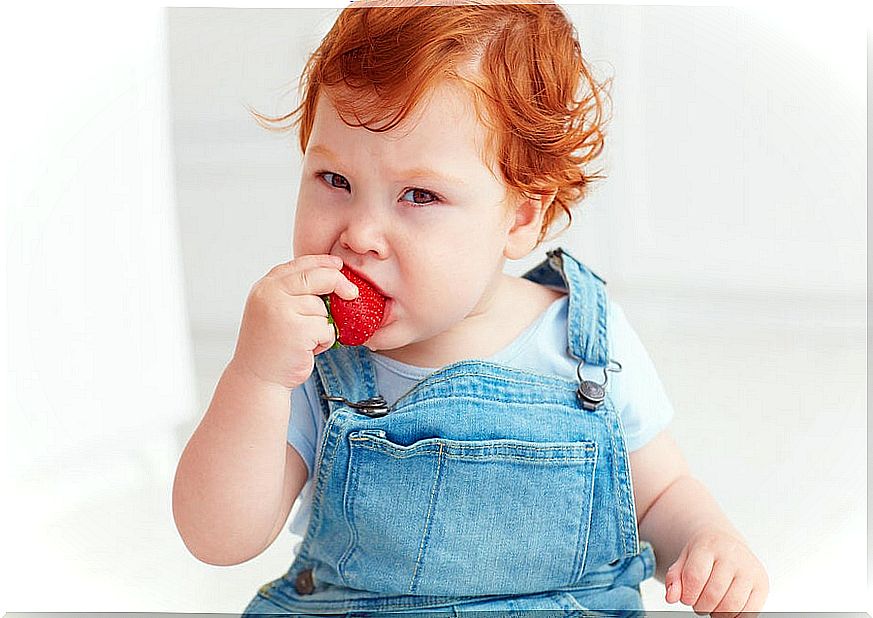
If your child is drooling a lot, they run the risk of choking frequently or having constant nausea, as well as breathing difficulties. In any of these cases, it is best to remain calm and take the baby to the pediatrician to rule out any pathology.
Ultimately, it is also important to recognize that the baby’s swallowing reflex is immature and tends to linger for a time.
Is it just the teeth that my baby drools a lot?
Clearly, one of the reasons that a baby drools excessively is because of the eruption of the teeth. Although they take time to sprout, from the second month of life the tooth nuclei begin to move under the gums.
Saliva contains enzymes, which help fight possible infections. That is why its production will increase after the first tooth comes out. At this stage, the baby will surely ask for a teether. These small elements give relief to the gums, but they produce a lot of saliva.
On the other hand, the first thing the child discovers are his hands, and he immediately begins to put them in his mouth. In this way, explore new sensations. By playing with his hands in his mouth, he stimulates salivation and begins to drool.
This activity is helpful when the baby begins complementary feeding. For example, grabbing your food and putting it in your mouth slowly starts you on the supplemental solids diet on its own.
When they begin to bite their fingers and play with their tongue, babies stimulate salivation, which is necessary to soften and swallow food.
Thus, the baby tends to bite in the area where the teeth appear; This part is usually swollen and red. Salivation is quite pronounced and necessary at that time, as it keeps the area hydrated and prevents infections.
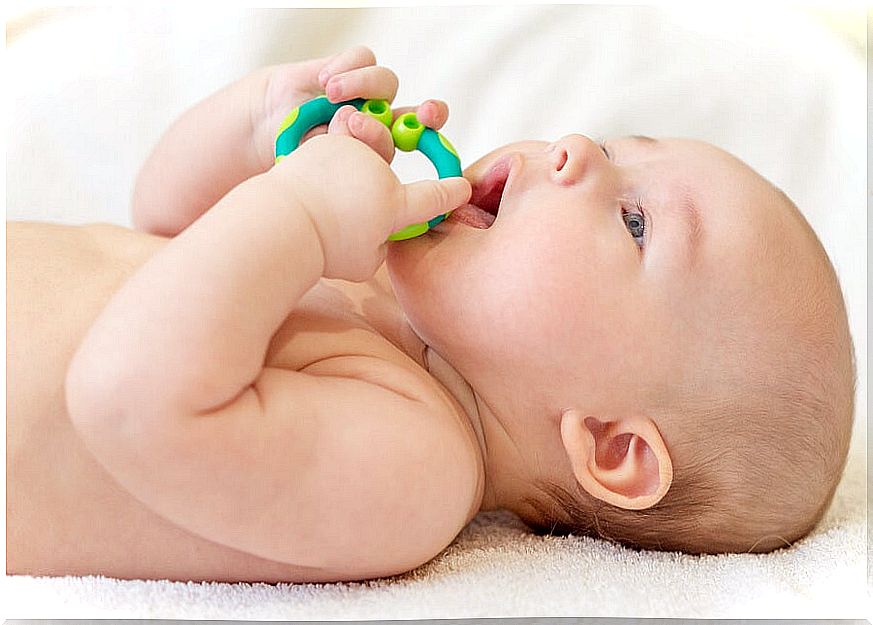
Saliva and food
The new flavors and sensations produced by the introduction to solid foods stimulate the taste buds and secrete more saliva than usual. The role of saliva is to act as a lubricant and help food reach the stomach.
You must be very attentive if your little one’s salivation goes beyond what is considered normal; In general, the average age at which the child stops drooling is up to 18 months, although it is highly variable. Everything will always depend on the maturation process, the acceptance of the intake of solid food and the emergence of the teeth.
Not being alarmed is essential, just as having an absorbent bib and a pacifier on hand is very useful to help the baby in this period. Discover and calmly enjoy each stage of your baby’s growth; Remember at all times that, good and bad, both are unique and unrepeatable.
